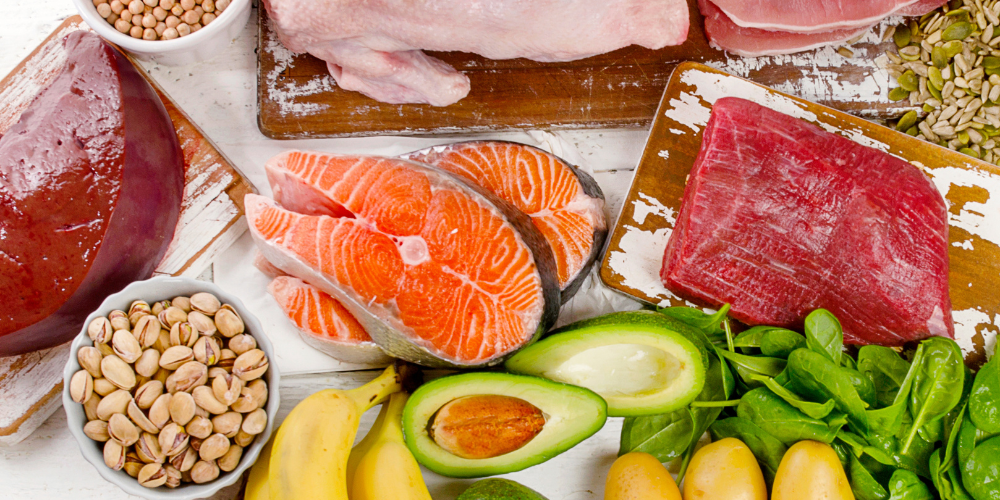As the days grow shorter and the weather turns colder, our bodies need a little extra care to stay healthy and energised. With fewer hours of sunlight and the onset of cold and flu season, it’s essential to ensure you’re getting the right vitamins to support your immune system and overall well-being. In this article, we’ll discuss the top three vitamins you should focus on during the colder months to Vitamins to Boost Your Health: Vitamin D, Vitamin C, and Vitamin B6.

1. Vitamin D: The Sunshine Vitamin
Why Vitamin D Is Essential in Winter
Vitamin D is often called the “sunshine vitamin” because our bodies produce it in response to sunlight. During the colder months, however, we tend to spend more time indoors and have less exposure to the sun, putting us at risk of a deficiency. Vitamin D plays a crucial role in immune function, bone health, and muscle strength, making it especially important during the winter months.
Signs You Might Need More Vitamin D
- Fatigue or low energy
- Frequent infections or illnesses
- Bone pain or muscle weakness
Best Sources of Vitamin D
- Fatty fish (like salmon, mackerel, and sardines)
- Fortified dairy products (milk, yogurt)
- Eggs
- Mushrooms exposed to sunlight
- Fortified plant-based milks (almond, soy, oat)
If you’re not getting enough vitamin D from your diet or sunlight, consider taking a vitamin D supplement, especially during the winter months. Read more about vitamin D here.

2. Vitamin C: Your Immune System’s Best Friend
Why Vitamin C Is Crucial for Winter Wellness
Vitamin C is well-known for its immune-boosting properties. During the colder months, our immune systems are more likely to be tested, making Vitamin C an essential nutrient to fight off colds and flu. This powerful antioxidant helps protect cells from damage, supports collagen production for skin health, and enhances iron absorption, which is especially important during winter when people tend to eat fewer fresh fruits and vegetables.
Signs You Might Need More Vitamin C
- Frequent colds or infections
- Slow wound healing
- Dry or rough skin
- Swollen or bleeding gums
Best Sources of Vitamin C
- Citrus fruits (oranges, grapefruits, lemons)
- Bell peppers (especially red peppers)
- Kiwi
- Broccoli
- Strawberries
- Leafy greens like spinach and kale
Including more Vitamin C-rich foods in your diet can help boost your immune system and ensure you stay healthy throughout the winter season.

3. Vitamin B6: The Energy Booster
Why Vitamin B6 Is Important in Winter
Vitamin B6 is essential for maintaining energy levels, supporting the immune system, and regulating mood. During the colder months, when people are more prone to feeling sluggish or experiencing seasonal mood changes, ensuring you have adequate levels of Vitamin B6 can help keep you feeling energized and balanced.
Signs You Might Need More Vitamin B6
- Fatigue or low energy
- Irritability or mood changes
- Poor immune function
- Skin rashes or cracks around the mouth
Best Sources of Vitamin B6
- Poultry (chicken, turkey)
- Fish (salmon, tuna)
- Potatoes
- Bananas
- Chickpeas
- Fortified cereals
Including Vitamin B6-rich foods in your diet will help combat fatigue and keep your immune system functioning at its best.
As the colder months approach, it’s important to focus on vitamins that support your immune system, boost energy levels, and protect your overall health. Vitamin D, Vitamin C, and Vitamin B6 are three essential nutrients to prioritise during the winter months to help you stay healthy and feel your best.
By incorporating these vitamins into your diet through natural food sources or supplements, you can ensure your body is prepared to take on the challenges of the season. Be sure to check with a healthcare provider before starting any supplements to ensure you’re meeting your specific needs.





